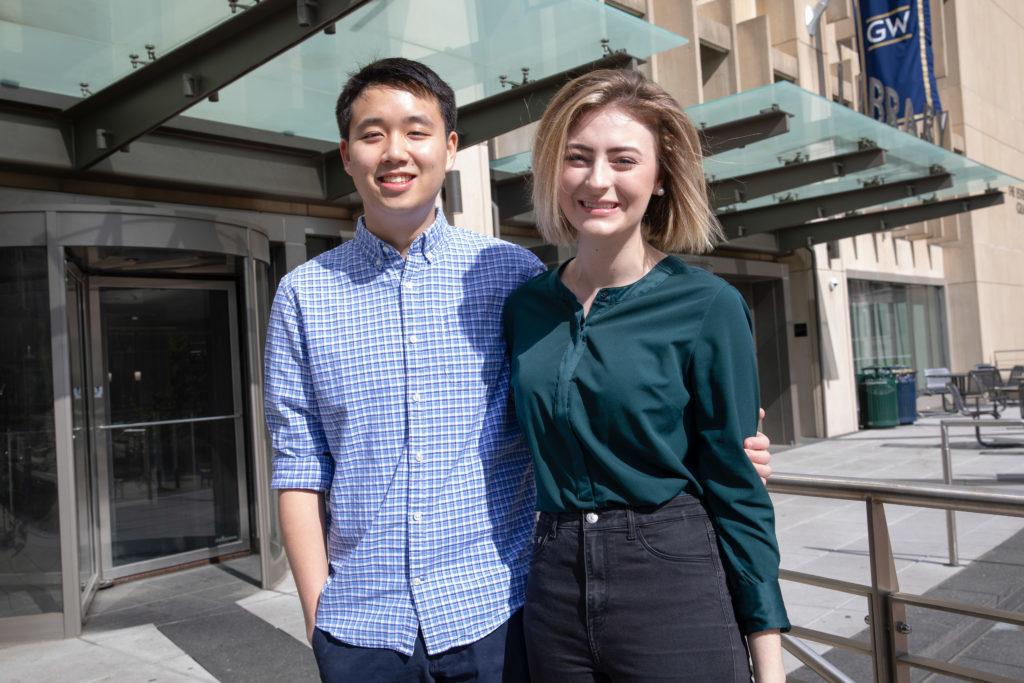Updated: April 30, 2018 at 1:43 p.m.
The University will follow in the steps of nearly all of its peer institutions by creating a centralized hub for academic resources.
Officials released a plan to create an academic resource center in Gelman Library that will combine some academic services currently housed in offices like Disability Support Services and the Writing Center, into one location within the coming months. Student Association leaders said the center mirrors programs at peer institutions, like University of Miami and Tufts University, where similar centers streamline communication between academic departments.
“We want to be a prime research institution that focuses on academics in addition to the other great things that we do,” SA President Peak Sen Chua said. “We need to emphasize that the academic experience is central to the things that we do.”
Geneva Henry, the dean of libraries and academic innovation, said SA leaders proposed the academic resource center in the fall. She said they reported many academic resources existed on campus but coordination was “lacking,” making it difficult for students to find the services they need.
“We need to emphasize that the academic experience is central to the things that we do.”
In line with the center, GW Libraries will launch a new website for undergraduate academic resources before the fall – the result of SA advocacy work – to highlight the combined services and list campus study spaces, Henry said. The website will also feature a feedback page for students to recommend services they want in the future, she added.
“We have to balance the desire to centralize with the need for study space, so many services will continue to be offered in other locations across campus,” she said in an email.
The University will not hire additional employees to work for the academic resource center, she said.
Chua said the center will operate out of the STEM lab and writing center on the second floor of Gelman. He said the space will also host new programs, like academic skills workshops, and will expand on previously existing programs, like group and peer tutoring.
“Learning these time management skills and study skills not only helps for a semester of a college experience, but all four years and beyond,” Chua said.
Academic resources are currently offered through several departments. The Writing Center reports to the Columbian College of Arts and Sciences and career advising reports to the Center for Career Services – but the new center will offer the services in one location.
Sydney Nelson, the SA’s executive vice president, said she expects the resource website to be available this fall, though the launch is contingent upon the creation of the study space database.
The center was one of SA leaders’ four spring priorities to improve overall student satisfaction. Nelson said the new structure complements initiatives – like the free 18th credit students voted overwhelmingly in favor of last month – that they’ve pushed forward this year to assist students academically.
“If we are asking for this 18th credit, we want to make sure students are as supported as possible in the classrooms,” Nelson said. “We want to take these services that are offered across campus and make sure students have access to them.”
At least 10 of the University’s 12 peer institutions, including Boston University and the University of Miami, offer academic resource centers that Chua and Nelson said they used as a framework for GW’s model.
Academic resource center directors at peer schools said the structure allows workers to point students to exactly what they need instead of directing them to an entirely different department for assistance.
Glenn Wrigley, the director of Boston University’s 25-year-old Educational Resource Center, said students find academic resources more accessible when they’re integrated into one system because all of the services offered are in an integrated location.
“You don’t have students going all over the far reaches of campus to accomplish something, they have everything that’s right there in one location,” he said.
Marianne Huger Thomson, the executive director of American University’s academic resource center, said the service pinpoints how administrators can accommodate students’ academic needs because there is more communication between departments.
“We can say ‘ah, this is an issue that’s going on on campus,’ rather than little pockets of information throughout where we’re not getting a big picture of what students are coming in with,” Thomson said.
“Centralizing services helps students know where to go to get help.”
Mykel Billups, the assistant dean of the University of Miami’s academic resource center, said since the center was created about 10 years ago, it’s become a social space for students to come together and study.
Billups said Miami offers academic counseling and sessions where students can learn about time management, note taking, organization and test-taking. The center also provides a first-year online course and learning initiative to help students acclimate to the academic demands of college, she added.
“Centralizing services helps students know where to go to get help,” she said. “It helps make it very clear that there is a place that’s there to provide support and guidance to students.”
Parth Kotak, Kelly Hooper and Meredith Roaten contributed reporting.





